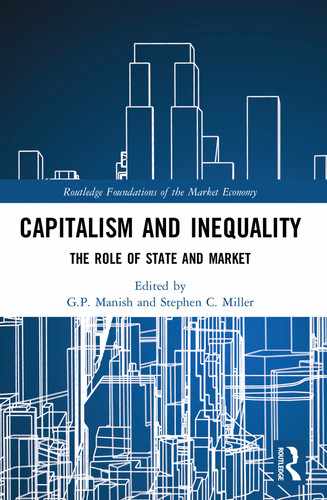Capitalism and Inequality rejects the popular view that attributes the recent surge in inequality to a failure of market institutions. Bringing together new and original research from established scholars, it analyzes the inequality inherent in a free market from an economic and historical perspective. In the process, the question of whether the recent increase in inequality is the result of crony capitalism and government intervention is explored in depth. The book features sections on theoretical perspectives on inequality, the political economy of inequality, and the measurement of inequality. Chapters explore several key questions such as the difference between the effects of market-driven inequality and the inequality caused by government intervention; how the inequality created by regulation affects those who are less well-off; and whether the economic growth that accompanies market-driven inequality always benefits an elite minority while leaving the vast majority behind. The main policy conclusions that emerge from this analysis depart from those that are currently popular. The authors in this book argue that increasing the role of markets and reducing the extent of regulation is the best way to lower inequality while ensuring greater material well-being for all sections of society. This key text makes an invaluable contribution to the literature on inequality and markets and is essential reading for students, scholars, and policymakers.
Table of Contents
- Cover
- Half Title
- Series
- Title
- Copyright
- Contents
- List of contributors
- Acknowledgments
- Introduction
- 1 Capitalism, cronyism, and inequality
- 2 Globalization and inequality: does anyone lose from free trade?
- 3 The institutional justice of the market process: entrepreneurship, increasing returns, and income distribution
- 4 Growth, inequality, and unfairness: comparing the progressive and classical liberal perspectives
- 5 Government labor policies and the law of unintended consequences
- 6 Government and the economic history of American income inequality
- 7 Inequality, monetary policy, and the gold standard
- 8 Market liberalization and the poor in India: measuring economic inequality through consumption
- 9 The economic history of taxation and inequality in the United States
- 10 The measurement of income distribution and the measurement of inequality: a critical analysis
- Index
